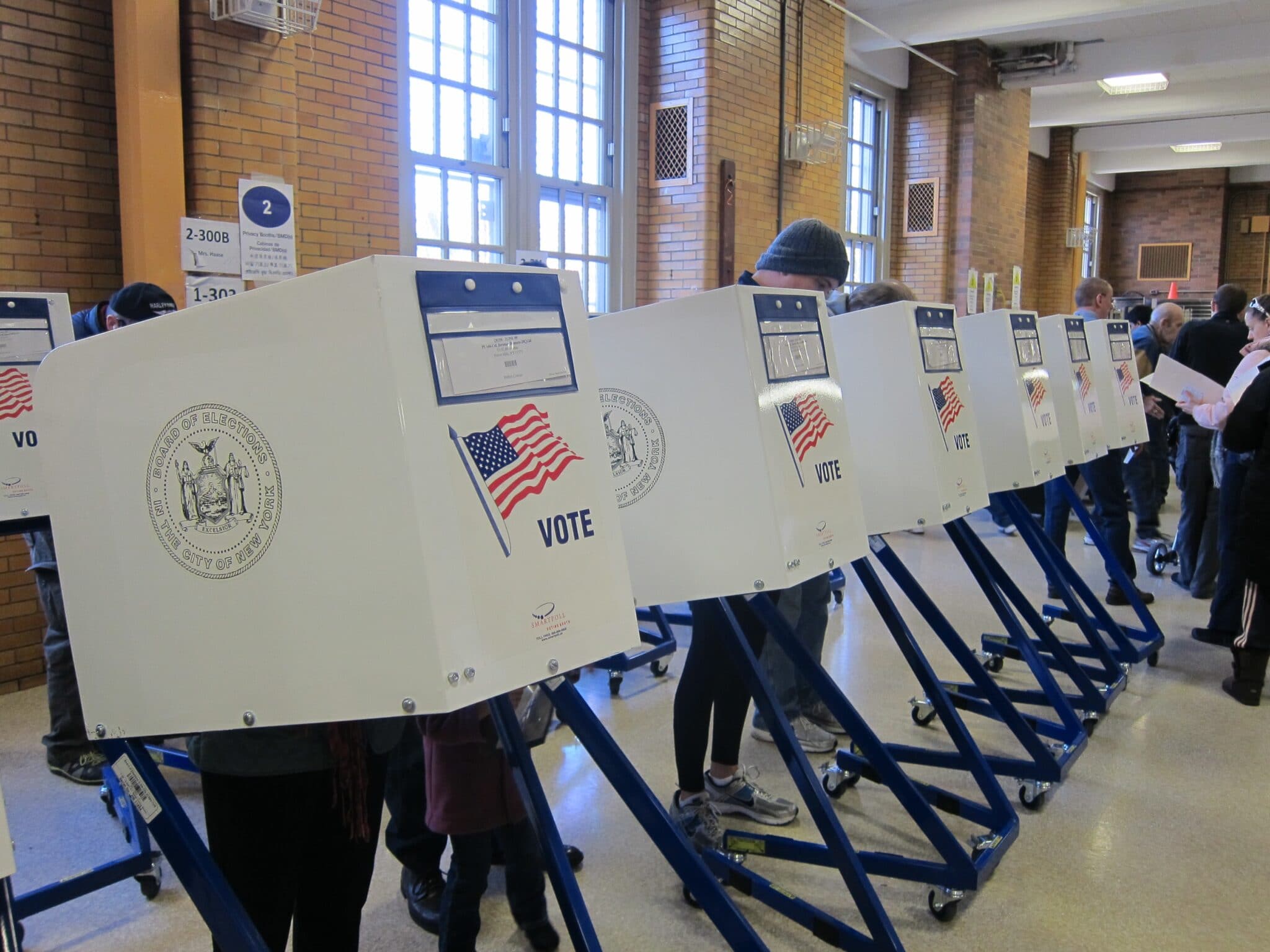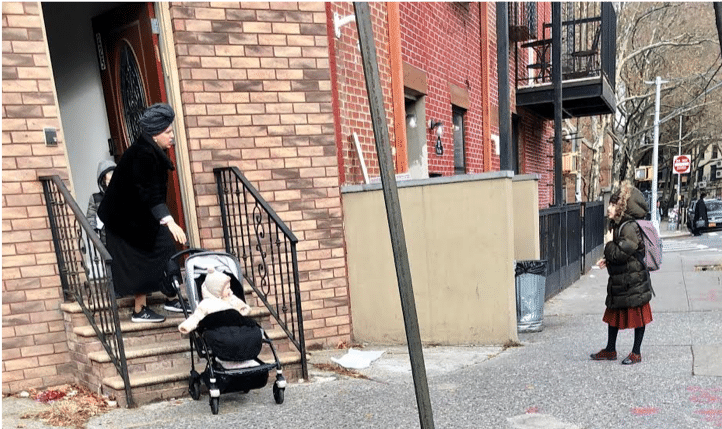New York's redistricting plan could have major consequences for Astoria progressives–but only if it can get approved. Image credit to Joe Shlabotnik on Flickr
New York’s redistricting plans are up in the air after a group of Republican voters challenged the new electoral map in court. This challenge has added to the uncertainty that many communities feel as they continue to assess the consequences of the new plan. In the Astoria community, many wonder how the new plan will impact progressives.
Chloé Hayat, an Arab American playwright, calls Astoria home. Once you get her talking about her neighborhood, you soon realize how much she loves it. “I could go on and on. It’s my favorite place!” “One of the things I’ve loved most about this neighborhood has been our progressive, community-minded, down-to-earth representatives.”
When she first looked into how New York’s redistricting plan will impact Astoria progressives, Hayat was concerned. On the one hand, the plan has made it less likely that progressive congresswoman Alexandria Ocasio-Cortez will face a serious primary challenge, now that her district has added more of Astoria’s young, liberal voters. But Hayat’s state assemblyman Zohran Mamdani, a member of the Democratic Socialists of America, will lose a whopping 45% of his current district. He will shed the liberal areas of Steinway and Ditmars but will gain more moderate neighborhoods including the NYCHA developments– Astoria Houses, Queensbridge and Ravenswood– and the Court Square and Queens Plaza sections of Long Island City.
Hayat will remain in Mamdani’s district under the new plan, and reelecting Mamdani is a priority for her. Redistricting has thrown a wrench into that already challenging task. “Zohran is a constant and transparent presence. I’m so proud to have voted for Zohran, and I do feel like if I were in need, I would have a government official to turn to.”
The redistricting occurred because every ten years the New York State legislature updates district lines to reflect new census data. From the 1960’s up until 2018, Republicans had almost exclusive control of the state senate. That gave them control of the redistricting process. But this past year, for the first time in decades, Democrats controlled the redistricting commission. Astoria’s State Senator, Michael Gianaris, led the process.
Mamdani has often butted heads with top Democrats in Albany. The new district lines mean he will face a tough re-election after winning his 2020 primary by only 400 votes. Mamdani does not believe that his socialist politics were a factor in the change. Before the vote on redistricting, he spoke from the assembly floor and said, “I’m sure there are some of my colleagues who have taken issue with my politics and the way in which I practice them…But I don’t think that that was the motivating intent behind the drawing of these districts.” Instead, Mamdani, one of the only Democrats to vote against the plan, grounded his opposition in his belief it weakens the electoral voice of South Asian communities in the areas of Richmond Hill and South Ozone Park, who remain in separate districts. Mamdani is the first South Asian man elected to the assembly and said he felt it necessary to advocate for the shared interests of those communities.
Émilia Decaudin, Assembly District 37’s Democratic State Committee member agrees with Mamdani, “There are still major flaws in the new maps, especially in the Assembly maps in Eastern and Southeastern Queens. South Asian communities are still cut up into multiple ADs.”
Critics call the new map an apparent case of partisan gerrymandering, drawing political district lines to favor particular candidates or parties. But Democrats say they have undone Republican gerrymandering from the past. When pressed on the issue on the Brian Lehrer show, Astoria Senator Michael Gianaris defended the work of his commission. “It shouldn’t be a surprise that when maps are done fairly, there’s going to be a result that reflects that reality on the ground…New York is a deep blue state,” he said.
Decaudin says these concerns don’t apply to Queens, which already leans heavily Democratic, “You can say a lot about gerrymandering and whether it’s okay depending on who does it, but I don’t see how that applies in Queens, given that we are an overwhelmingly Democratic borough and you would have to go much further out of your way to draw Republican districts than not.”
But on March 31, a New York State Supreme Court judge in Steuben County disagreed with the map’s proponents. Republican Justice Patrick F. McAllister agreed with a group of Republican voters who brought a lawsuit challenging the new lines. Judge McAllister called Democrats out for gerrymandering and sent them back to the drawing board. He said, “The court finds clear evidence and beyond a reasonable doubt that the congressional map was unconstitutionally drawn with political bias.” He gave legislators until April 11 to draw new maps. A few days later, on April 4, an appellate court judge issued a stay of that order. He agreed to hear arguments about why the plan should stay in effect.
The big issue is the way congressional districts were drawn. The new plan would give Democrats the overwhelming advantage in 22 of the 26 congressional districts. The 12th Congressional District, Congresswoman Maloney’s seat, which covers Astoria and the Upper East Side, was already overwhelmingly Democratic but was targeted for change. The new map helped Rep. Maloney jettison much of the young and progressive voters in Astoria for more affluent and centrist voters in neighborhoods like the Upper West Side. The New York Times previously reported that Congresswoman Maloney was lobbying for a less progressive district. In the past two elections, Maloney faced a competitive primary challenge from progressive Suraj Patel. She won by a slim 42% to Patel’s 40%.
In Astoria, Chloé Hyatt feels torn. “I have appreciated and benefitted from Carolyn Maloney’s tenure in the past, but I am very hopeful that the future of NYC is in the hands of people like Zohran.” she said. She, like other progressive people in Astoria, were hoping for change in Maloney’s district.
The drama over redistricting will continue to play out in the courts during April. Governor Kathy Hochul and Democrats have vowed to fight the challenges to their plan.
Tags: Astoria CCNY City College of New York Congresswoman Carolyn Maloney Democrats elections New York Citty New York State progressives Queens Redistricting Republican voters State Senator Michael Gianaris voting Zohran Mamdani
Series: Community






